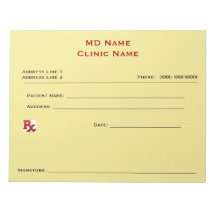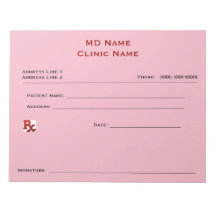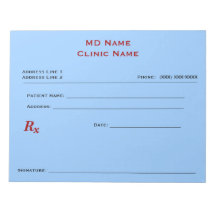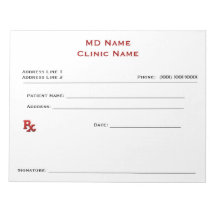Asset Purchase
Asset purchases generally work best when the buyers are interested in select assets of the target practice, such as CT scanners in radiology or linear accelerators in radiation oncology. If the buyer is not concerned about the practice continuing as a going concern, an asset purchase is likely the best approach. The seller in an asset purchase transaction must be careful to ensure it receives sufficient consideration to cover any future liabilities. Further, the taxable income the corporation receives may be subject to double taxation in a C-corporation, both at the company level and then at the shareholder level when the proceeds from the sale are distributed. It is because of these tax implications, that physicians would be wise to discuss the proposed approach with their accountant. Generally, when pieces of a business are sold, the price will be lower than when the entire business is sold as a going concern. However, buyers sometimes choose an asset purchase structure even when wanting to continue the practice as a going concern, but are particularly concerned about acquiring unknown or contingent liabilities. Also, an asset purchase can be more difficult where there are a large number of contracts with third parties whose consent would be required to transfer those contracts to the buyer.
Stock Purchase
A stock purchase generally works best when the buyer wants to acquire the target practice as a going concern, and there are few shareholders. Negotiations are more straightforward when there are fewer parties involved, and holdouts are less likely. Thus, large practices with many physician owners may take longer to consummate this time of acquisition. Buyers will prefer to obtain all of the outstanding stock of the target practice if possible. When there are minority shareholders who do not agree to sell, they buyer can approve a merger after the acquisition, although this can trigger appraisal rights. Sellers will generally prefer the tax treatment of a stock purchase, while buyers will prefer the transaction be taxed as an asset purchase. After consultation with your accountant, it might be possible to classify a stock purchase as an asset purchase for tax purposes by filing a special tax election, thereby affording the seller and the buyer the best of both worlds.
Merger
A merger generally works well when there are multiple shareholders in a target practice that a buyer wishes to acquire as a going concern. Instead of having to negotiate with multiple shareholders, once a majority of the shareholders consent to the transaction, the buyer can be assured of having control of the business going forward. In a “reverse triangular merger”, buyers can retain limited liability by separating the target practice in a wholly-owned subsidiary, obtain all of the assets by operation of law, and generally avoid having to obtain third-party consents.
Laws
Mergers and acquisitions are largely a creature of the laws of the state in which the practice is incorporated/formed. However, tax laws impact the analysis significantly as well. The business and legal terms of an acquisition will be negotiated and agreed among the parties, but the underlying state law provides a framework for, and the basic requirements of, how each of those transactions must be conducted. The essential features of each deal type are a function of state law as well. Federal tax laws also weigh on the determination of whether the parties choose to enter into an asset sale, stock sale or merger, as discussed above.
Reasons for Selling
The reasons physician owners decide to sell a practice are as varied as the reasons for starting a practice in the first place. Some practices are sold because no one in the younger generations wants to continue in the business as an owner. In some instances, practice owners may not be actively considering selling when they are approached by an interested party (e.g. hospital, physician practice, or private equity-backed MSO). Because of their fiducial duty to act in the best interest of the practice, shareholders must carefully consider even unsolicited offers.
A buyer’s reason for targeting a practice for acquisition can be equally varied. The target may have developed a market into which the buyer wishes to expand, whether a geographic expansion, patient base, or referral base. The target may have a medical specialty that the buyer believes would be valuable to its business operations. Often larger companies (such as hospital systems or private equity-backed MSOs) can maximize the efficiency of a smaller practice or create other synergies by bringing in-house various administrative functions that otherwise eat away at profits of smaller practices. A buyer may also attempt to literally buy market share by purchasing a competing practice.
Regardless of the motivations from the buyer or seller’s side, the ultimate driver for an acquisition is price. A seller wants to realize a return on investment (as that term is used in the broadest sense), and a buyer wants to realize value in the long term through the target’s business or assets. It is for all these reasons outlined above, that physician owners would be wise to engage experienced professionals to help them first navigate the strategic aspects and then to wade through the transaction details.
20% Off Medical Practice Supplies
VIEW ALL
 Manual Prescription Pad (Large - Yellow)
Manual Prescription Pad (Large - Yellow) Manual Prescription Pad (Large - Pink)
Manual Prescription Pad (Large - Pink) Manual Prescription Pads (Bright Orange)
Manual Prescription Pads (Bright Orange) Manual Prescription Pads (Light Pink)
Manual Prescription Pads (Light Pink) Manual Prescription Pads (Light Yellow)
Manual Prescription Pads (Light Yellow) Manual Prescription Pad (Large - Blue)
Manual Prescription Pad (Large - Blue)
__________________________________________________
Appointment Reminder Cards
$44.05
15% Off
$56.30
15% Off
$44.05
15% Off
$44.05
15% Off
$56.30
15% Off












No comments:
Post a Comment